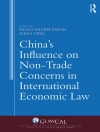This book details how Russia’s February 2022 open invasion of Ukraine has led to the biggest military conflagration and refugee crisis in Europe since World War II—a development with global ramifications. Co-written by a leading Western political expert, with three decades of research on contemporary Ukraine, and a prolific British journalist, the book explains why Russian President Vladimir Putin has been long obsessed with Ukraine and how his reliance on dated nationalist myths as well as anti-Western xenophobia led him to miscalculate Ukrainian and Western reactions to his brazen aggression against a sovereign country and founding member of the United Nations since 1945. Taras Kuzio and Stefan Jajecznyk-Kelman analyze how Putin’s blunders have led to the collapse of Russia’s Eurasian sphere of influence, to the growth of China’s presence in Russia’s backyard in Central Asia, and to conditions for the toppling of Putin’s regime.
The book focuses on:
– the roots of Putin’s obsession with Ukraine and the genocidal policies his army is pursuing through war crimes, deportations of millions of Ukrainians as well as destruction of property and infrastructure,
– why the supposed ‘second biggest army in the world’ is being defeated by Ukraine, a country Russian nationalists argue is fictitious, and by a Ukrainian people they claim does not exist,
– how Ukraine is fighting a people’s war with a nation-wide volunteer movement, civil society, and international supporters who are backing the Ukrainian army through fund raising, purchasing of supplies and military equipment, such as drones, and through an ‘IT Army’ fighting Russia’s invasion in cyber space and the hacking of Russian media,
– how the invasion is having profound negative implications for Russian-Ukrainian relations and why in breaking from Moscow, Ukraine is again the key actor—as it was in 1991—in the disintegration of the Soviet and Russian empires, and
– how Russia’s invasion of Ukraine has led to global crises in economic growth, trade, and finances, as well as to changing geopolitical alliances, with the decline of Russia creating a vacuum that allows for the rise of China.
Sobre el autor
Andreas Umland, M.Phil. (Oxford), Dr.Phil. (FU Berlin), Ph.D. (Cambridge), Research Fellow at the Swedish Institute of International Affairs in Stockholm, Senior Expert at the Ukrainian Institute for the Future in Kyiv, and Associate Professor at the National University of Kyiv-Mohyla Academy.












